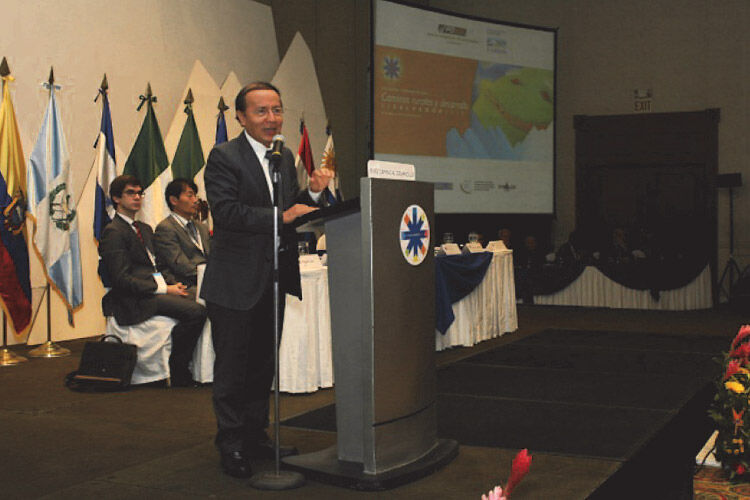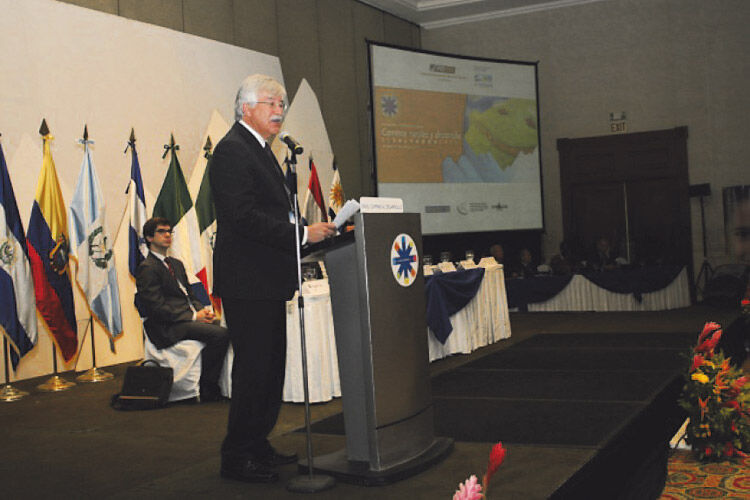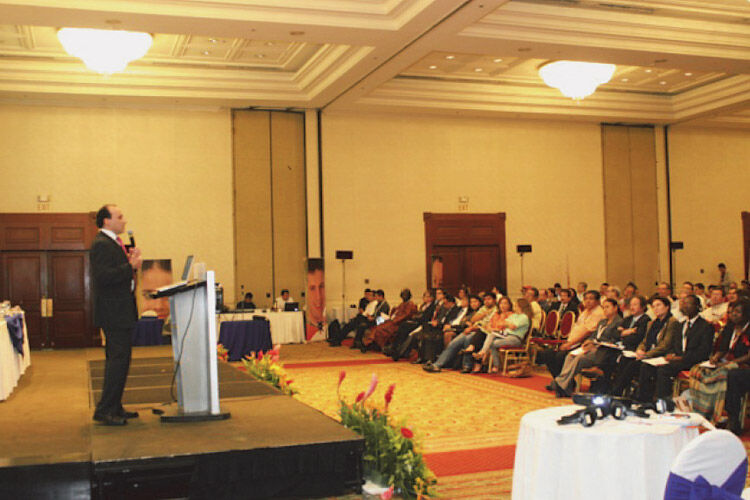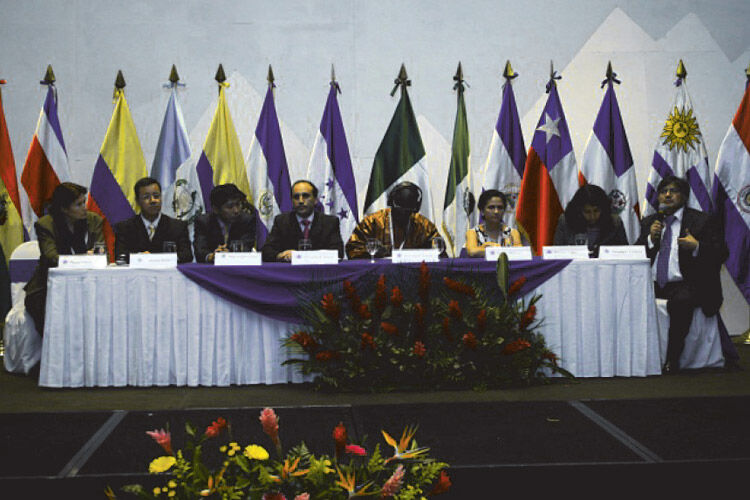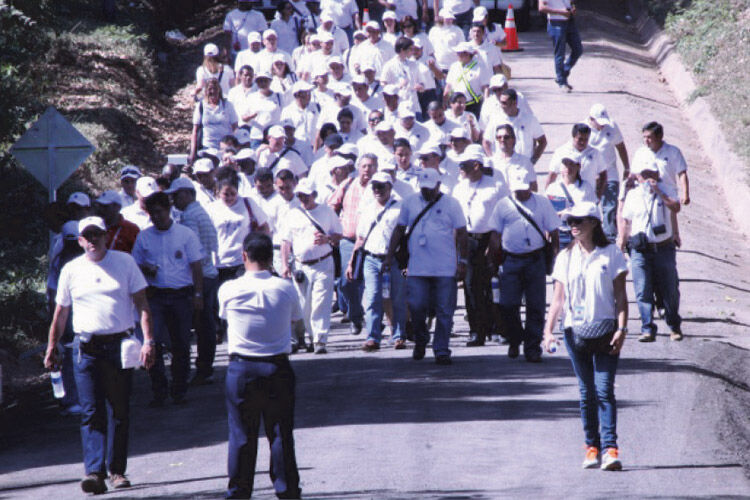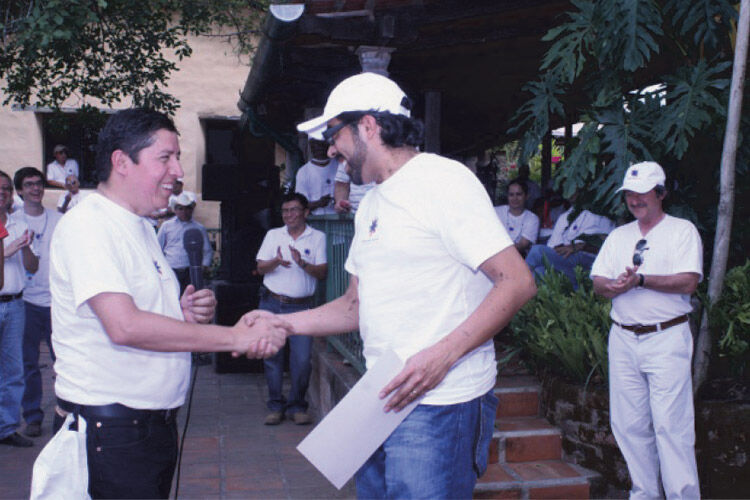International Seminar "Rural Roads and Development"
San Salvador (El Salvador), 28-30 November 2012
This international seminar was organized jointly by the Government of El Salvador and Technical Committee 2.5 « Rural Road Systems and Accessibility to Rural Areas » of the World Road Association.
It provided the opportunity to exchange experiences on rural roads construction and maintenance that guarantees connectivity, serviceability and development.
Preparatory Documents for the International Seminar "Rural Roads and Development"
Speaking at the opening session, both the Minister of Public Work of El Salvador and the President-elect of the World Road Association, Oscar De Buen, stressed the importance of rural roads for the essential services they provide to almost one billion human beings worldwide. This billion of beneficiaries is among the poorest citizens in their respective country.
Two hundred and seventy-nine participants attended the eighteen technical papers presented by Salvadorean and international speakers. The technical sessions were structured around four pillars:
- world panorama of road connectivity,
- rural roads: roads and environment - roads and technology,
- climate change and its impact on road infrastructure,
- planning the management of road infrastructure development.
From the presentations and debate the following keyconcepts and concluding remarks stood out:
• Project implementation and monitoring. It is necessary to prioritize rural connectivity projects through prior feasibility studies on the technical, economic and environmental aspects. Taking into account the results of cost/benefit analysis will enable decision-makers to identify the best possible solution. The importance of road maintenance based on levels of service was also stressed as was the involvement of the local community as manpower for the projects.
• Actions in favor of the environment. It was considered essential to reduce as much as possible the pollution of protected areas and keep to the minimum the exploitation of natural resources/raw materials. Recycling ofwaste materials from the work site should be used to the full extent in building new roads.
• Actions that contribute to social development. It is necessary to coordinate efforts with the communities that benefit from the road project thanks to the following actions: cooperation agreements with the local authorities, conventions with road haulage contractors for the transport of raw materials, support of local communities with the participation of locals as manpower on the road worksites.
• Technological Development. The necessity of a register and the monitoring of implemented projects (historical data) was emphasized as was the use of computer equipment to help with the recording and the processing of a large quantity of information.
On the third day of the Seminar, all participants were taken to one of the experimental sections that the El Salvador´s Road Conservation Fund (FOVIAL) has developed on an unpaved road, located 47 km northeast of the capital city. The experimental sections of ground stabilization were built in 2010, one after the other, using in each of them different stabilizing agents (cement, lime, cement+lime and asphaltic emulsion); the objective of these experimental sections is the verification of the performance of every applied alternative throughout three years of service, under the same loading, drainage and environmental conditions.
International Seminar Program on Rural Roads and Development |
First day of the Seminar (28 November) |
Conferences |
Theme I - The global overview of the accesibility |
Sustainable roads in Mexico (Spanish) |
World prospects for connectivity and maintenance solutions for rural roads; the environment of national parks in Italy as a case study in Europe and in Colombia for Latin America (French) |
Georeferenced inventory of rural roads in Mexico (Spanish) |
The development of Basic Roads in Chile (Spanish) |
Maintenance Management Plan (PGM) for rural roads (Spanish) |
Theme II - The impact of climate change on road infrastructure |
Dynamics of the cooperation between MOPTVDU (El Salvador) and JICA (Japan) on climate change (Spanish) |
Climate change and its impact on road infrastructure in Nicaragua (Spanish) |
Second day of the Seminar (29 November) |
Conférences |
Theme III - Management of road infrastructure development - A new road network to guarantee accessibility and serviceability |
Software tools for efficient management of road infrastructure in El Salvador (Spanish) |
Importance of alternative routes in the road network planning |
Cantonal Road Network Program PRVC-I, Minsitry of Public Works / Inter-American Development Bank (Spanish) |
Theme IV - Rural Roads: roads and environment - roads and technology |
Management of rural roads planning, improvement and maintenance (French) |
The reality of rural roads in areas of high climate impact - Optimizing resources in our rural roads (Spanish) |
Monolayer pavement of high performance - Experiences in Latin America (Spanish) |
Stabilization of clay soils with lime - Experience in El Salvador and Guatemala (Spanish) |
Cobblestone of Rural Roads (Spanish) |
Indian Experience of Dedicated National Programme on Rural Accessibility - Prime Minister's Rural Roads Programme (PMGSY) |
Protection of Road Infrastructure - New materials resistant to climate change (Spanish) |
Third day of the Seminar (30 November) |
Technical Visit |
